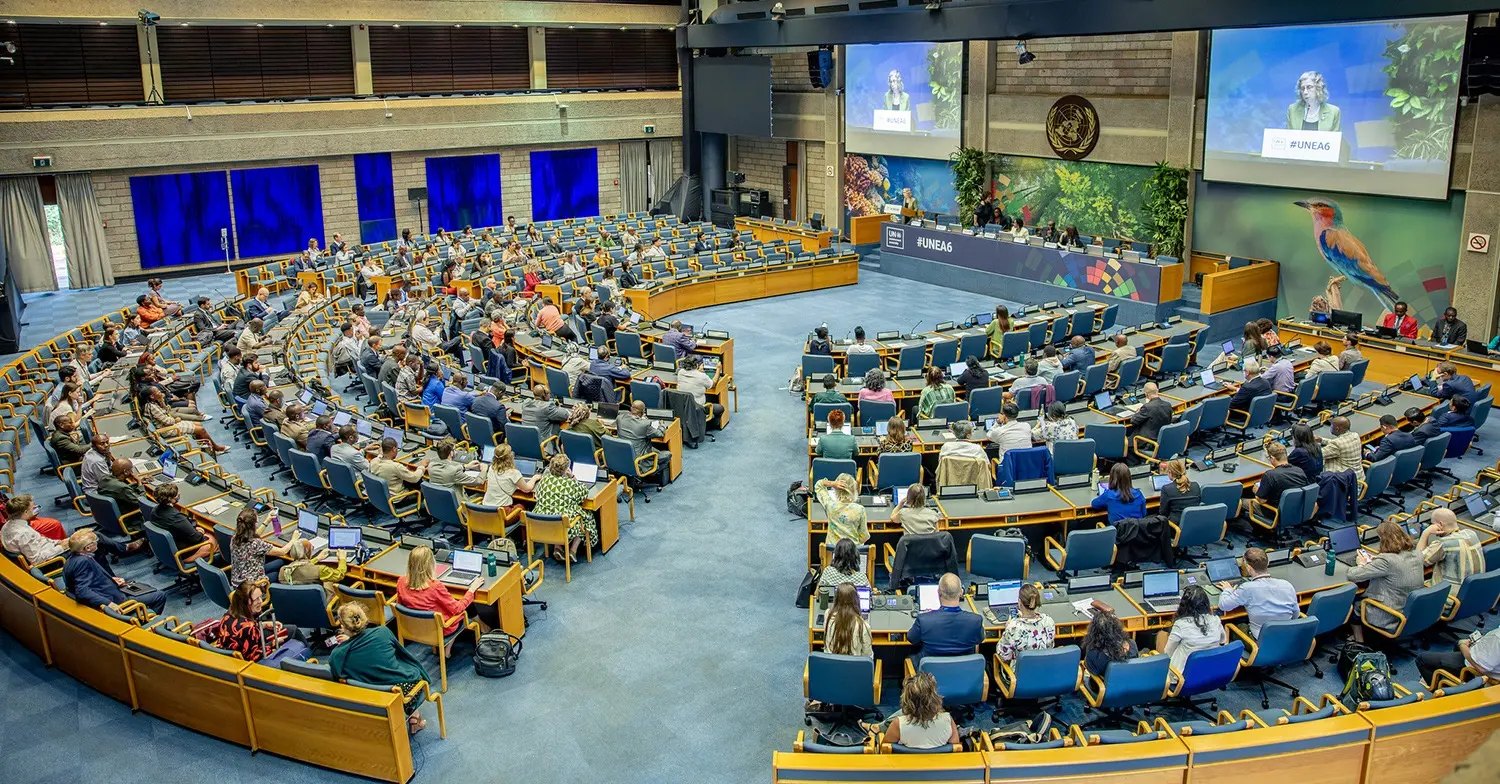
Evans Omurwa solar installation technician with his team in one of their clients project in Narok County. Evans has employed a team of 15 in is solar installation services. PHOTO/Arnold Ageta
By Arnold Ageta
Kenya is embracing renewable energy as a key driver of its economic development in the face of a rapidly changing climate and rising energy demand. Africa, and specifically Kenya, has the potential to become a global leader in renewable energy production due to its abundant sunshine, wind, and geothermal resources.
The transition to renewable energy is about more than just environmental sustainability; it is also about creating jobs, reducing poverty, and improving the lives of Kenyans. Renewable energy is one of the world’s fastest-growing industries, with millions of new jobs expected to be created in the coming decades. Renewable energy is already creating significant job opportunities in Kenya, particularly in rural areas where unemployment is high.
In addition to job creation, renewable energy is helping Kenya reduce poverty. Renewable energy is improving the lives of millions of Kenyans currently without electricity by providing access to clean and affordable energy.
Kenya’s government is committed to promoting the growth of the renewable energy sector. By 2030, the government intends to generate 50 per cent of its electricity from renewable sources. The government is also offering tax breaks and feed-in tariffs to encourage the development of renewable energy projects.
The private sector is also contributing significantly to the growth of Kenya’s renewable energy sector. In Kenya, several private companies are investing in renewable energy projects. These firms are drawn to Kenya because of its abundant renewable energy resources and the government’s supportive policies.
Transitioning to renewable energy is an important step for Kenya’s economic development and environmental sustainability. Kenya is creating jobs, reducing poverty, and protecting the environment by embracing renewable energy.
Evans Omurwa, an independent solar designer and installation technician based in Nyamira who has been in this business for five years now. He has a team of 15 solar technicians with whom he works. He says solar energy demand is growing rapidly because it is cheap and affordable.
“Solar energy is cheaper compared to other types of energy and fuels. Once installed, you are sorted,” he said.
However, he added, “the initial cost is a bit expensive, but in the long run, you will get value for your money.”
According to him, many people in the village who fully depended on cooking gas, kerosene, charcoal, firewood, and gas for cooking and other domestic uses are slowly embracing solar energy.
“Many do not believe that they can use solar for cooking, but I can assure you that if the solar panels installed produce at least 3000 watts, it is as efficient as electricity,” he argued. “Solar energy is environmentally friendly and does not contribute to climate change.”
He says that solar energy is a new frontier, especially in Africa, which receives enough sunshine for long periods.
“Solar energy will soon create many jobs in and will sort out many unemployment challenges in Kenya. If I have employed 15 guys as an individual, how will big solar organizations employ?” he wonders.

Currently, Kenya depends on non-renewable energy sources to supply energy. This accounts for 54 per cent compared to 46 per cent of renewable energy sources.
Kipekebe tea factory (a subsidiary of Sasisni PLC) has adopted the use of solar energy after commissioning a mega solar power project early this year.
According to the factory’s Managing Director, Mr. Silas Njibwakale, their solar project is a 1300 kilowatt-hour (KWh), distributed at 650 KWh between the two factories-Kipkebe and Keritor.
“Our solar station generates 650 KWh, which has helped us reduce the cost of production immensely. For instance, between September and December 2022, we saved around Ksh9.6 million,” he said.
“We are working on sustainable goals as we try to mitigate the effects of climate change. Going forward, 30 per cent of our power consumption will be coming from solar.”
The solar project has been made possible after hiring solar equipment from Rentco, the company that supplied them.
“This project is an agreement between Rentco and Sasini, where Rentco is the supplier, and they are charging us at a very affordable rate,” Mr. Njibwakale said.
He added, “Rentco charges us Ksh 8.18 per KWh, while electricity from Kenya Power charges Ksh24.”
According to Sasini Group’s Chief Executive Officer Martin Ochieng, their solar power adoption is one of the climate change mitigation measures that their mother company (Sasini) is adopting as their sustainability plan to shift to green energy.
“The reason why we are shifting to solar is that we are committed to our sustainability development goals, especially affordable and clean energy,” said Ochieng.
“What is driving us is not cost. What is driving us is to leave the world better by generating power from renewable sources,” he insisted.
Geographically, Kenya is along the equator and receives sufficient sun that can be tapped to provide solar energy.
“The problem has been people’s inability to invest in solar stations that can generate power to replace the more expensive and less green sources that we have been traditionally using,” he explained. “We use wood fuel for firing up boilers and drying tea. It is the best way to generate boiler steam to dry the tea.”
This means the factory will not fully transition to clean energy, which requires the factory to entirely depend on renewable energy for its operations.

It is critical that the Kenya renewable energy sector transition is just and equitable in light of the ongoing COP28 in Dubai. International collaboration through a Fossil Fuel Non-Proliferation Treaty will help facilitate this transition.
The FFNPT treaty has proposed a stop in the expansion of fossil fuel exploitation and provides practical roadmap for a just transition away from coal, oil and gas to clean energy.
It is believed that the treaty can unlock the finance and technology required for Africa and Kenya to unleash their clean energy potential, light up communities, and channel this energy into improved development outcomes, economic growth, public health benefits, and educational development.
This includes making renewable energy benefits available to all Kenyans, including those in rural areas and those most vulnerable to climate change.
Kenyan leaders should also work to ensure that the country’s renewable energy sector is long-term and does not contribute to environmental degradation.
The transition to renewable energy provides Kenya with an opportunity to build a more prosperous and sustainable future. Kenya can create jobs, reduce poverty, and protect the environment by embracing renewable energy.



